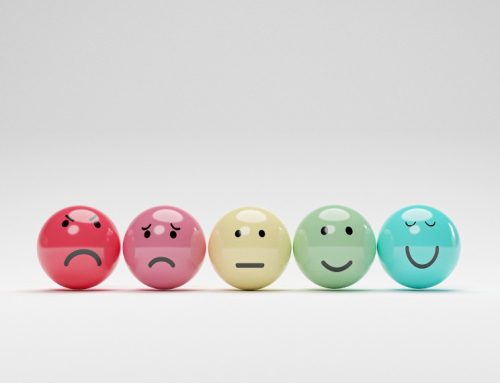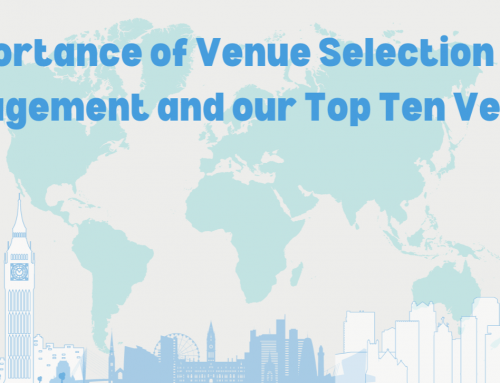In a world where we can find out anything, anytime online; where we can read a blog, pop on a podcast, find a YouTube video that gives step-by-step instructions, watch a webinar in our PJ bottoms, while the kids argue over which advent calendar is which, why would anyone bother to attend an in-person medical education event? After all, in the midst of the busy winter season, when healthcare professionals are already gearing up for the most intense period of the year, it can be hard to justify spending precious time and resources away from home. But as we approach the festive season, it’s worth considering the true impact of live educational events. In fact, they’re not just about learning the latest in medicine; they play a pivotal role in shaping patient care and advancing healthcare practices.
Let’s dive into how these events create lasting changes in healthcare, while adding a little festive cheer to the equation!
Keeping up with rapid changes in healthcare: A necessity, not a luxury
The medical field is constantly evolving. New technologies emerge, healthcare delivery methods shift, and the demographics and disease patterns of populations change. This makes it essential for healthcare professionals to stay up to date with the latest research and best practices. Live educational events, such as conferences and workshops, offer opportunities to learn about these advancements directly from experts, allowing physicians and other healthcare professionals to refine their skills and broaden their knowledge base.
If we compare it to decorating a Christmas tree, we need to continually add new elements, whether it’s a new set of baubles (technologies) or replacing the angel on top that’s been around since the 80s and has a chipped wing and a missing nose (changing treatments). Medical education events give healthcare providers the tools to incorporate the latest updates into their practices, ensuring that patient care is informed by the latest and most accurate information available.
At healthcare events where there is support from industry sponsors, it is, of course, essential to balance the needs and objectives of the faculty and the sponsors. A good medical education event should ensure scientific sessions are not biased and that information is accurate, balanced and that sponsorship is transparent. There should be a clear separation between the educational sessions and the sponsorship.
One powerful feature of these events is the chance to hear about the trials, errors, and lessons learned by colleagues around the world. By engaging with others’ experiences, participants gain insights that can improve their own practice, enhancing patient outcomes.
Networking and collaboration: The gift of connection
Beyond the scientific content, one of the greatest benefits of in-person medical education events is the opportunity to network. Conferences often bring together a diverse group of professionals, from seasoned experts to rising stars in the field, allowing for collaboration and the exchange of ideas. This kind of networking fosters innovation and promotes a collective approach to healthcare.
At a recent conference, for example, healthcare professionals from across the UK, Ireland, and beyond gathered to share best practices in cardiology. The event featured cutting-edge research, presentations on new technologies, and discussions on improving patient care. In addition, there was ample opportunity for informal collaboration, which proved to be invaluable in terms of sparking new ideas and fostering partnerships across institutions and borders.
A memorable aspect of this particular event was the gala dinner, which provided a relaxed atmosphere for delegates and faculty to discuss ideas in a more informal setting. Just as festive dinners allow friends and family to reconnect, these moments at medical events can lead to fruitful collaborations that ultimately benefit patient care.
Innovation and competition: A season for progress
As well as collaboration, medical education events also foster a healthy dose of competition, such as abstract presentations, where healthcare professionals showcase their most innovative research. These events provide a platform for the experts to share their findings, and attendees are often inspired by the creative solutions to complex healthcare challenges. In many ways, this competition drives innovation, which directly benefits patient care by introducing new, evidence-based solutions.
But just as the festive season is about celebrating the spirit of giving, medical events are equally focused on sharing knowledge. This sense of community and collaboration—where success is measured by how much can be learned and applied to improve patient care—is what makes these events so impactful.
The voice of the patient: Always at the heart of medical education
At the core of every medical education event must be the patient. The ultimate goal of these events is to improve patient care, and this focus is reinforced through real-world case studies and discussions. During a recent conference, one particularly poignant moment was hearing from a mother who tragically lost her son to a rare and lethal channelopathy. Her story reminded everyone in the room of the profound impact that healthcare can have on families and reinforced that improving patient care is the reason we come together to learn, collaborate, and innovate.
This brings us back to the importance of keeping patient safety and care front and centre in all medical education. It’s not enough to simply focus on the scientific and technical aspects of healthcare; the human element – the emotional and personal toll of illness – must always be considered.
Improving healthcare practices: An essential gift for patients
The impact of these events on healthcare practices is clear. Feedback from attendees consistently shows that what they learn at these events leads to tangible changes in their medical practice. Within the feedback from a recent conference, nearly 90% of conference participants reported that the knowledge they gained would change their future medical practice. This is the gift that keeps on giving—improved practices, improved treatment outcomes, and ultimately, improved outcomes for patients.
Moreover, these events often lead to long-term societal benefits. By enhancing healthcare professionals’ knowledge and skills, medical education events contribute to improving healthcare systems, not just on an individual level, but also in terms of broader, systemic improvements. This results in a more efficient, effective, and patient-centric healthcare system, which benefits everyone.
Conclusion: Med-ed is not just for Christmas
As we come to the end of another year, it’s a great time to reflect on the incredible value that medical education events bring to healthcare professionals and their patients. These events not only offer the latest scientific advancements, but they also create opportunities for networking, collaboration, and innovation. They serve as a reminder that no matter how advanced our technologies or information sources become, the true heart of healthcare lies in the connections we make and the lives we improve.
Have yourself a merry little med-ed – in the spirit of the season, let’s continue to make a difference, one learning experience at a time, for the benefit of our patients, our teams, and our communities.
The CFS Events Team
Ellie Cope
December 2024
For more information on CFS Events’ Event Management Services, please click here or email robyn@cfsevents.co.uk
#EventManagement #MedicalEvents #eventmanagementcompany #eventmanagement #eventsuk #events #corporateevents #medicaleducation #medicaleducationservice #medicaled #onlineevents #change #womeninbusiness #womeninbusinessuk #femaleled
References:
Forsetlund L, O’Brien MA, Forsén L, Reinar LM, Okwen MP, Horsley T, Rose CJ. Continuing education meetings and workshops: effects on professional practice and healthcare outcomes. Cochrane Database Syst Rev. 2021 Sep 15;9(9):CD003030. doi: 10.1002/14651858.CD003030.pub3. PMID: 34523128; PMCID: PMC8441047.
Mishra S. Do medical conferences have a role to play? Sharpen the saw. Indian Heart J. 2016 Mar-Apr;68(2):111-3. doi: 10.1016/j.ihj.2016.03.011. PMID: 27133315; PMCID: PMC4867024.
https://www.gmc-uk.org/-/media/documents/promoting-excellence-standards-for-medical-education-and-training-2109_pdf-61939165.pdf






